Are you a proud owner of a Golden Retriever in Los Angeles? We know how important it is to keep your furry friend healthy and happy, starting with their diet. In this comprehensive guide, we will provide you with essential tips on feeding your Golden Retriever in the bustling city of Los Angeles. From choosing the right type of food to creating a feeding schedule that fits your pet’s lifestyle, we’ve got you covered. Say goodbye to confusion and hello to a well-nourished pup with our Golden Retriever Feeding Tips for Los Angeles!
Understanding Your Golden Retriever’s Dietary Needs in Los Angeles
Recognizing the Nutritional Requirements of Golden Retrievers
Golden Retrievers have specific dietary needs that must be met to ensure their overall health and well-being. It is crucial for pet owners in Los Angeles to understand these requirements in order to provide the best possible nutrition for their furry companions.
-
Importance of a balanced diet: Golden Retrievers require a well-balanced diet that includes the right proportions of protein, fat, carbohydrates, vitamins, and minerals. A balanced diet is essential for maintaining optimal health, supporting growth and development, and preventing nutritional deficiencies.
-
Protein: Protein is a crucial component of a Golden Retriever’s diet as it helps support muscle growth, repair tissues, and maintain a healthy immune system. High-quality sources of protein such as chicken, turkey, fish, and lamb are recommended for Golden Retrievers.
-
Fat: Fat is another important nutrient for Golden Retrievers as it provides a concentrated source of energy and helps maintain healthy skin and coat. Opt for healthy sources of fat such as fish oil, flaxseed oil, and chicken fat to support your Golden Retriever’s overall health.
-
Carbohydrates: While Golden Retrievers primarily require protein and fat in their diet, carbohydrates also play a role in providing energy and fiber. Opt for complex carbohydrates such as brown rice, sweet potatoes, and peas to ensure a well-rounded diet for your furry friend.
-
Vitamins and minerals: Golden Retrievers need a variety of vitamins and minerals to support various bodily functions, including bone health, immune function, and overall well-being. Ensure your pet’s diet includes a range of fruits, vegetables, and supplements to meet these essential nutritional requirements.
Factors Influencing Feeding Requirements
- Age, Weight, and Activity Level:
- Golden Retrievers have varying dietary needs based on their age, weight, and activity level.
- Puppies require a diet rich in nutrients to support their growth and development, while adult dogs may need a more balanced diet to maintain their weight and energy levels.
- Monitoring your Golden Retriever’s weight is crucial to adjust their feeding routine accordingly.
-
Active dogs may require more calories to fuel their high energy levels, whereas less active dogs may need a more controlled diet to prevent weight gain.
-
Health Conditions and Allergies:
- Health conditions and allergies play a significant role in determining a Golden Retriever’s feeding requirements.
- Dogs with certain medical conditions such as diabetes or kidney disease may require a specialized diet prescribed by a veterinarian.
- Allergies to specific ingredients like grains or certain proteins can also influence the type of food your dog can consume.
- It’s important to be aware of any health issues or allergies your Golden Retriever may have to provide them with the most suitable diet in Los Angeles.
Choosing the Right Dog Food for Your Golden Retriever in Los Angeles
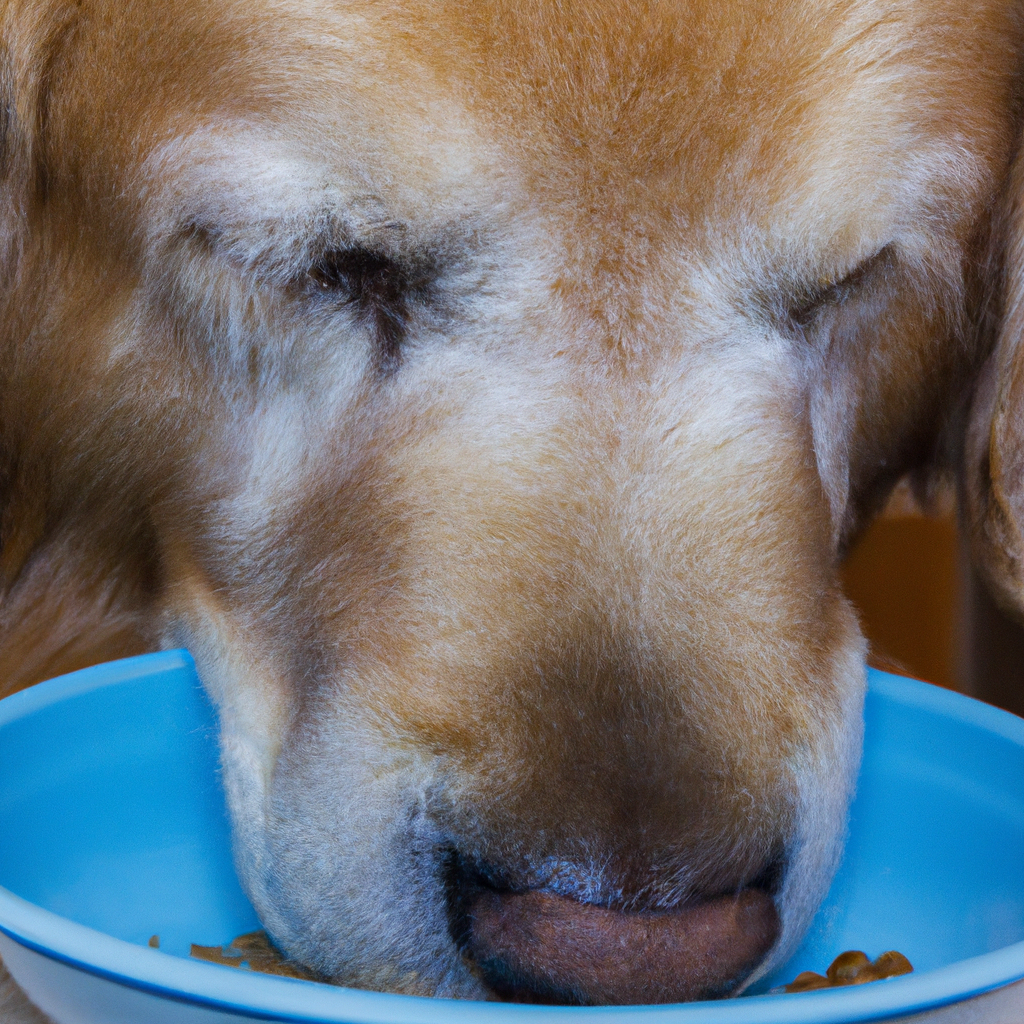
Types of Dog Food
-
Dry Kibble
- Dry kibble is a convenient option for many dog owners in Los Angeles due to its long shelf life and ease of storage.
- It helps with dental health by promoting chewing, which can reduce plaque and tartar buildup.
- However, some dry kibble may contain fillers and preservatives that are not ideal for a Golden Retriever’s diet.
-
Wet Food
- Wet food can be a palatable option for picky eaters or dogs with dental issues in Los Angeles.
- It provides hydration due to its high moisture content, which is beneficial, especially in warmer climates.
- On the downside, wet food can be more expensive than dry kibble and may not provide the same dental benefits.
-
Raw Diet
- A raw diet consists of uncooked meat, bones, fruits, and vegetables, mimicking a dog’s ancestral diet.
- Advocates believe it promotes better digestion, healthier coat, and overall well-being in Golden Retrievers.
- However, preparing a balanced raw diet can be challenging, and there is a risk of bacterial contamination if not handled properly.
Reading Dog Food Labels
When selecting the right dog food for your Golden Retriever in Los Angeles, it is crucial to pay close attention to the information provided on the labels. Here are some key points to consider when reading dog food labels:
-
Understanding ingredients: Look for dog foods that list high-quality protein sources such as real meat (e.g., chicken, beef, or fish) as the first ingredient. Avoid products that contain vague terms like “meat by-products” or “animal digest,” as these may indicate lower quality protein sources.
-
Avoiding fillers and artificial additives: Check the ingredient list for fillers like corn, wheat, and soy, which offer limited nutritional value and can cause allergies in some dogs. Additionally, steer clear of artificial colors, flavors, and preservatives, as these additives may have negative effects on your Golden Retriever’s health in the long run.
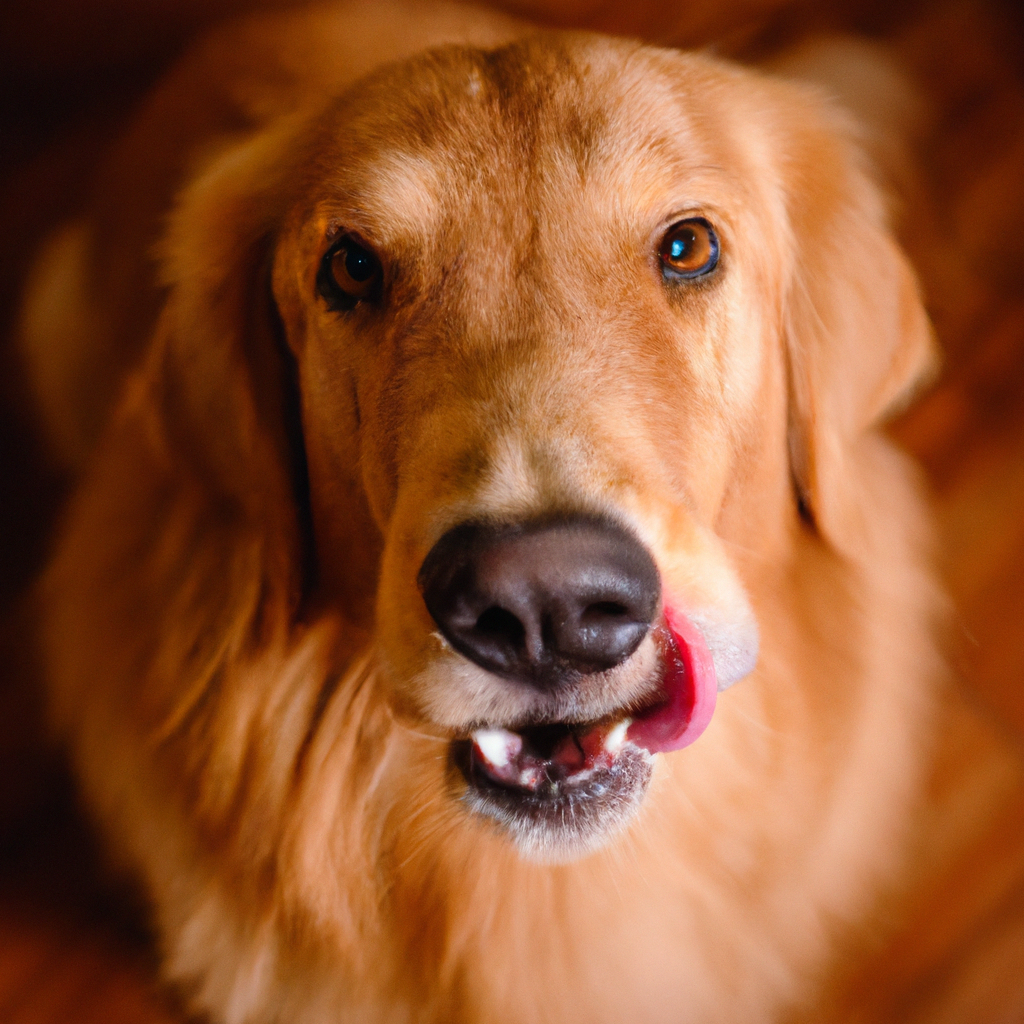
Establishing a Feeding Schedule for Your Golden Retriever in Los Angeles
Frequency of Meals
Establishing a Feeding Schedule for Your Golden Retriever in Los Angeles
Puppies vs. adult dogs
When it comes to feeding your Golden Retriever in Los Angeles, understanding the distinction between puppies and adult dogs is crucial. Puppies require more frequent meals due to their rapid growth and high energy levels. For puppies up to six months old, it is recommended to feed them three to four times a day to support their development and prevent hypoglycemia. As your Golden Retriever matures into an adult, typically around one year old, you can transition to a more structured feeding routine.
Mealtime consistency
Consistency in mealtime is key for your Golden Retriever’s well-being and digestion. In Los Angeles, where the climate can vary, maintaining a consistent feeding schedule can help regulate your dog’s metabolism and prevent stomach upsets. Try to feed your Golden Retriever at the same times each day to establish a routine. This consistency not only aids in digestion but also helps in monitoring your dog’s appetite and identifying any changes in their eating habits promptly.
Portion Control
When it comes to feeding your Golden Retriever in Los Angeles, portion control is key to ensuring their health and well-being.
-
Avoiding overfeeding: Golden Retrievers are known for their love of food, but overfeeding can lead to obesity and related health issues. It’s important to measure out your dog’s food according to their specific needs, taking into account factors such as age, weight, and activity level.
-
Adjusting portions based on activity level: Golden Retrievers in Los Angeles may have varying activity levels depending on factors such as the weather, access to outdoor spaces, and daily exercise routines. It’s crucial to adjust their food portions accordingly to ensure they are getting the right balance of nutrients without overeating. Be mindful of treats and snacks, as these can quickly add extra calories to your dog’s diet.
Incorporating Healthy Treats and Supplements for Your Golden Retriever in Los Angeles
Nutritious Treat Options
Fruits
- Golden Retrievers in Los Angeles can benefit from the natural sweetness and nutrients found in fruits like apples, bananas, and blueberries. These treats offer a healthy alternative to traditional commercial options and can serve as a refreshing snack during warm California days.
Vegetables
- Incorporating vegetables such as carrots, green beans, and sweet potatoes into your Golden Retriever’s diet can provide essential vitamins and minerals. These crunchy treats can also aid in maintaining dental health and offer a low-calorie option for pups in Los Angeles looking to stay fit and active.
Lean Meats
- Lean meats like chicken and turkey can be a protein-rich treat for your Golden Retriever in Los Angeles. Opting for cooked, unseasoned cuts of meat can offer a savory reward during training sessions or simply as a special indulgence. These treats can support muscle development and overall well-being for your furry companion in the sunny city.
Supplementing Your Golden Retriever’s Diet
When it comes to enhancing your Golden Retriever’s diet in Los Angeles, incorporating healthy treats and supplements can play a crucial role in their overall well-being. Omega-3 fatty acids are essential for maintaining your dog’s healthy skin and coat, as well as supporting their cognitive function. These fatty acids can be sourced from fish oil or flaxseed oil, which can easily be added to your Golden Retriever’s food.
Another beneficial supplement for your Golden Retriever is glucosamine, which is known for its joint health benefits. As Golden Retrievers are prone to hip dysplasia and arthritis, adding glucosamine to their diet can help support their joint health and mobility, especially as they age. It is recommended to consult with a veterinarian before introducing any new supplements to ensure they are suitable for your dog’s specific needs and health conditions.
Hydration and Water Needs for Your Golden Retriever in Los Angeles
Importance of Hydration
-
Recognizing signs of dehydration
Dehydration can have serious consequences for your Golden Retriever’s health, especially in the warm climate of Los Angeles. It’s crucial to be able to identify the signs of dehydration in your pet, which may include excessive panting, dry and sticky gums, lethargy, sunken eyes, and loss of skin elasticity. Monitoring your dog’s water intake and observing their behavior can help you catch dehydration early. -
Providing access to clean water
In a hot and dry city like Los Angeles, ensuring your Golden Retriever has constant access to clean and fresh water is essential. Dehydration can occur quickly, especially during outdoor activities or walks in the sun. Make sure to regularly refill your dog’s water bowl with fresh water and consider carrying a portable water bottle and bowl when out and about with your furry friend. Proper hydration is key to keeping your Golden Retriever healthy and happy in the City of Angels.
Monitoring Water Intake
- Factors affecting water needs
- Los Angeles climate: Golden Retrievers in Los Angeles may require more water due to the warm and dry weather, leading to increased risk of dehydration.
- Activity level: Higher activity levels necessitate more water intake to maintain hydration, especially in the active lifestyle often found in Los Angeles.
-
Health conditions: Certain health conditions, such as kidney disease or diabetes, can impact water needs and must be considered when monitoring intake.
-
Tips for encouraging adequate hydration
- Provide fresh water: Ensure access to clean, fresh water at all times, especially during hot weather in Los Angeles.
- Use a suitable bowl: Choose a bowl that is easy to clean and refill, encouraging your Golden Retriever to drink regularly.
- Monitor intake: Keep track of how much water your dog is drinking daily to ensure they are meeting their hydration needs, adjusting as necessary.
- Add water to meals: Incorporating water into your dog’s meals through wet food or adding broth can help increase overall water consumption.
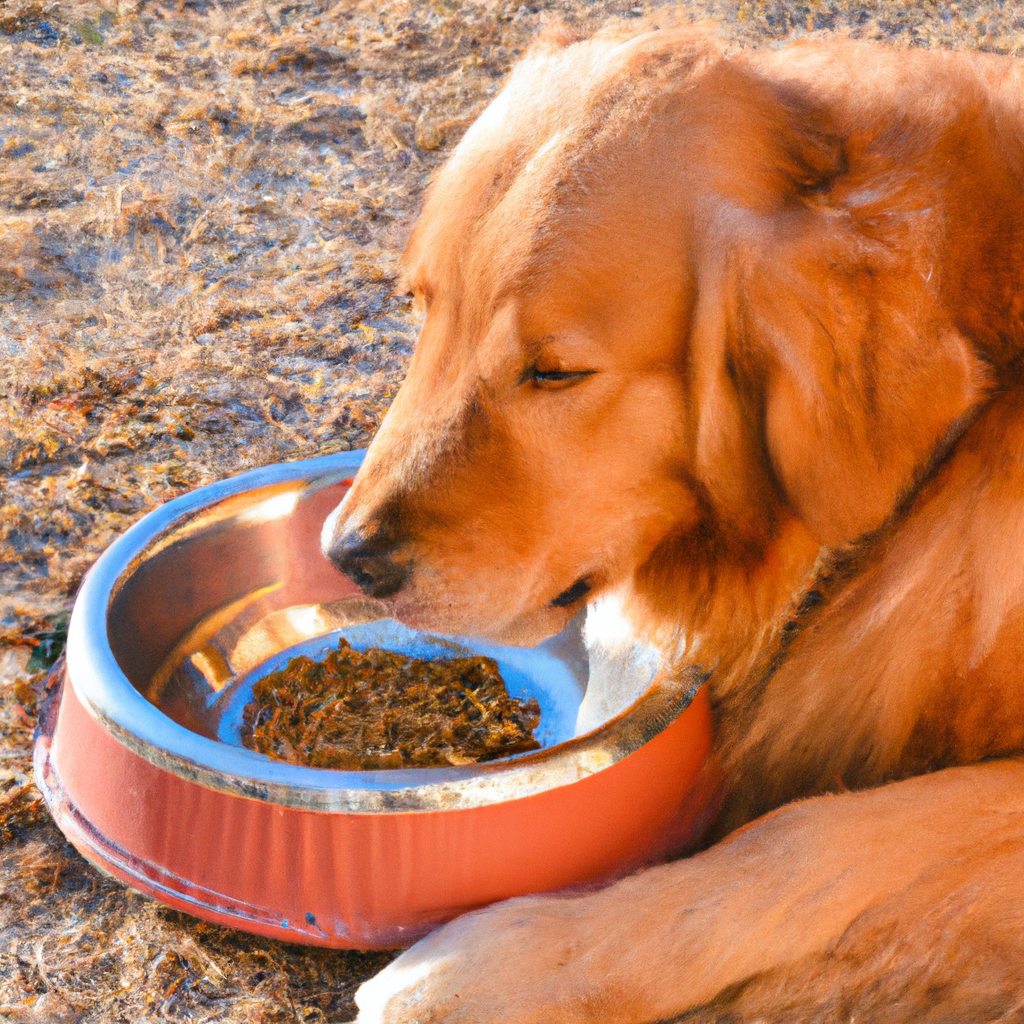
- Consider treats: Offer water-rich treats like fruits or vegetables to supplement your Golden Retriever’s water intake throughout the day.
Special Considerations for Feeding Golden Retrievers in Los Angeles
Addressing Food Allergies and Sensitivities
Common allergens in dog food
Golden Retrievers in Los Angeles, like many other breeds, can be prone to food allergies and sensitivities. Common allergens found in dog food that may trigger reactions in Golden Retrievers include:
- Grains: Wheat, corn, and soy are frequent culprits in causing allergic reactions in dogs, including Golden Retrievers. Opting for grain-free or limited ingredient diets can help alleviate these issues.
- Proteins: Chicken, beef, and dairy products are known to be common allergens for dogs. Switching to alternative protein sources such as fish or venison may be beneficial for Golden Retrievers with protein sensitivities.
- Artificial additives: Preservatives, colors, and artificial flavors present in some commercial dog foods can also trigger allergic reactions in sensitive Golden Retrievers. Opting for natural or organic dog food options can help avoid these additives.
Elimination diets and testing
When dealing with suspected food allergies or sensitivities in Golden Retrievers, implementing an elimination diet can be a useful strategy. This involves feeding the dog a novel protein and carbohydrate source that they have not been exposed to before, such as duck and sweet potato. Gradually reintroducing previous foods one at a time can help identify the specific allergen causing the reaction.
Additionally, allergy testing can be conducted to pinpoint the exact allergens that may be affecting the Golden Retriever. This can be done through blood tests or skin tests performed by a veterinarian specialized in pet allergies. Identifying and eliminating the specific allergens from the dog’s diet is crucial in managing food sensitivities and ensuring the Golden Retriever’s health and well-being.
Managing Weight and Dietary Restrictions
Maintaining an optimal weight for your Golden Retriever is crucial to their overall health and well-being. In Los Angeles, where the weather can vary, it’s important to consider the impact of temperature on your dog’s activity level and metabolism. Here are some tips to help manage your Golden Retriever’s weight and dietary restrictions in the City of Angels:
- Weight control tips
- Monitor food portions: Be mindful of the amount of food you are feeding your Golden Retriever. Overfeeding can lead to weight gain, which can have detrimental effects on their health.
- Regular exercise: Ensure your dog gets an adequate amount of exercise to help maintain a healthy weight. Los Angeles offers a variety of outdoor activities that you can engage in with your furry companion.
-
Consult with a veterinarian: If you are unsure about the ideal weight for your Golden Retriever, seek guidance from a professional. They can provide personalized recommendations based on your dog’s age, size, and activity level.
-
Prescription diets for specific health conditions
- In cases where your Golden Retriever has specific health conditions that require dietary restrictions, consider prescription diets recommended by your veterinarian. These specialized diets are formulated to address particular health issues while still providing essential nutrients.
- Examples of prescription diets may include low-fat options for dogs with pancreatitis or weight management formulas for those prone to obesity.
By following these weight management tips and considering prescription diets for specific health conditions, you can ensure that your Golden Retriever in Los Angeles maintains a healthy weight and receives the necessary nutrients for a happy and active life.
Ensuring a Healthy and Balanced Diet for Your Golden Retriever in Los Angeles
When it comes to ensuring your Golden Retriever’s diet is healthy and balanced in Los Angeles, there are several key considerations to keep in mind:
Recap of Key Feeding Tips
- Quality of Food: Opt for high-quality dog food that is specifically formulated for large breeds like Golden Retrievers.
- Balanced Nutrition: Ensure the dog food provides a balanced mix of protein, carbohydrates, fats, vitamins, and minerals.
- Avoid Overfeeding: Golden Retrievers are prone to obesity, so it’s crucial to measure their food portions and avoid overfeeding.
- Regular Feeding Schedule: Establish a consistent feeding schedule to help regulate your dog’s metabolism and prevent digestive issues.
- Hydration: Always provide access to fresh, clean water to keep your Golden Retriever well-hydrated.
Prioritizing Your Dog’s Nutritional Needs
- Protein Requirements: Golden Retrievers require a diet rich in high-quality protein to support their active lifestyle and maintain muscle mass.
- Omega-3 Fatty Acids: Incorporate sources of omega-3 fatty acids, such as fish oil, into your dog’s diet to promote healthy skin, coat, and joint function.
- Complex Carbohydrates: Opt for complex carbohydrates like whole grains and vegetables to provide sustained energy for your active Golden Retriever.
- Vitamins and Minerals: Ensure your dog’s food includes essential vitamins and minerals like vitamin E, zinc, and calcium to support overall health and wellbeing.
- Consultation with a Veterinarian: It’s advisable to consult with a veterinarian to tailor your Golden Retriever’s diet based on their specific nutritional needs and any health conditions they may have.
FAQs: Golden Retriever Feeding Tips for Los Angeles
Is it important to consider the climate when feeding a Golden Retriever in Los Angeles?
Yes, it is important to consider the climate when feeding a Golden Retriever in Los Angeles. The hot and dry weather in Los Angeles may increase your dog’s water needs, so make sure to always provide fresh water for them. Additionally, you may need to adjust the amount of food you are feeding your Golden Retriever to account for changes in activity level due to the weather.
What type of food is best for a Golden Retriever in Los Angeles?
It is recommended to feed your Golden Retriever high-quality dog food that is appropriate for their age, size, and activity level. Look for brands that list meat as the first ingredient and avoid those with fillers and artificial additives. Some owners also choose to feed their Golden Retrievers a raw or homemade diet, but it is important to consult with a veterinarian to ensure your dog is receiving all the necessary nutrients.
How often should I feed my Golden Retriever in Los Angeles?
It is generally recommended to feed adult Golden Retrievers twice a day, in the morning and evening. Puppies may require more frequent feeding, up to three or four times a day. However, the specific feeding schedule may vary depending on your dog’s individual needs, so it is best to consult with your veterinarian for personalized advice.
Are there any special feeding considerations for Golden Retrievers living in Los Angeles?
Golden Retrievers in Los Angeles may be more prone to certain health issues like obesity due to the warm climate and the abundance of delicious treats available. It is important to monitor your dog’s weight and adjust their diet as needed to maintain a healthy body condition. Additionally, consider incorporating fresh fruits and vegetables into their diet as treats or as part of their meals to provide extra nutrients and hydration.
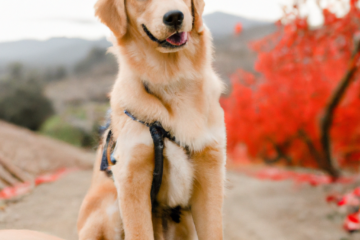
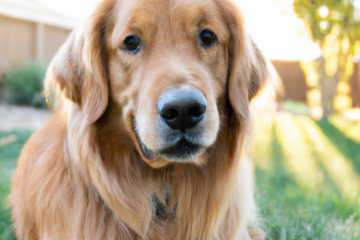
0 Comments